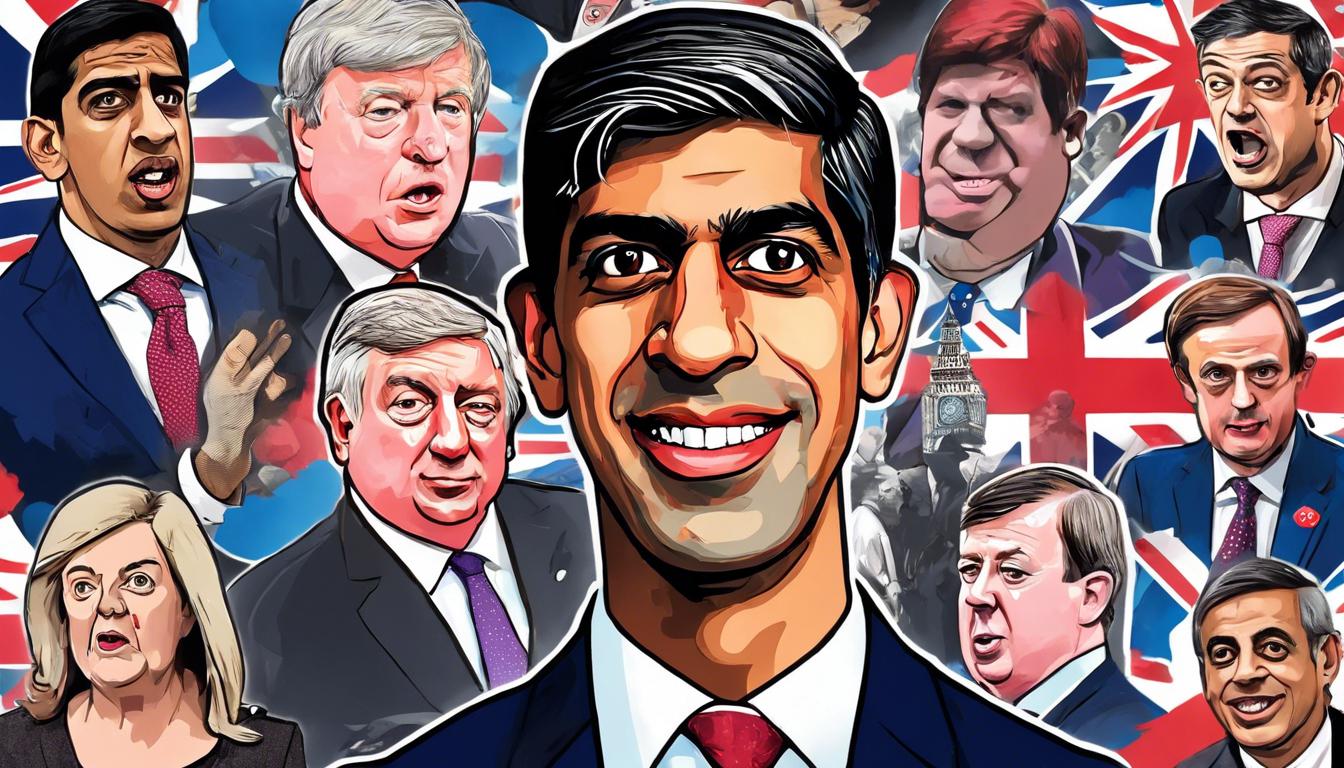Amidst donor scandals and party defections, Prime Minister Rishi Sunak confronts growing pressure within the Conservative Party as political rivals and allies alike strategize for upcoming elections.
Recent developments in British politics have brought Prime Minister Rishi Sunak under renewed pressure amidst internal Conservative Party discontent and broader political challenges. This situation emerges against the backdrop of key political figures making significant moves and parties strategizing ahead of impending elections.
Rishi Sunak’s leadership faces scrutiny due to a donor scandal involving Frank Hester and the defection of former Tory deputy chair Lee Anderson to the Reform Party. The internal dissatisfaction within the Conservative Party echoes past leadership crises, with speculations about Sunak’s future as Prime Minister. Ahead of challenging local elections scheduled for 2nd May, there are growing concerns about Sunak’s ability to unite the party and lead effectively. Despite this, Sunak plans to delay the general election until autumn, banking on positive economic indicators to solidify his position.
In Wales, Vaughan Gething has made history by becoming Welsh Labour’s leader, marking him as the first Black leader of a European country. Gething, aged 50, with Welsh-Zambian heritage, won against education minister Jeremy Miles. His leadership promises focus on improving education, health services, housing, and advancing green job initiatives, despite facing scrutiny over campaign donations. Gething’s victory underscores the diversity of UK political leadership alongside Prime Minister Rishi Sunak and Scotland’s First Minister Humza Yousaf.
Meanwhile, Nigel Farage, a notable political figure known for his Brexit advocacy, is speculated to return to front-line politics, potentially leading Reform UK in challenging the Tories under Sunak’s leadership. Farage’s potential involvement comes as the Conservative Party grapples with internal dissent and the impact of high-profile defections. This development has stirred concerns within the Conservative ranks, with some members contemplating leadership alternatives to counter Farage’s influence and bolster the party’s standing.
Labour, on the other hand, has been accused of attempting to keep Sunak as Prime Minister as part of a strategic move to improve their chances in the upcoming General Election. This strategic alleged operation, named “Operation Save S*** Dog,” aims to marginalise potential Conservative leadership challengers, fostering Labour’s position in the electoral race.
These unfolding political dynamics signal a period of uncertainty and strategic realignment within the UK’s political landscape, as parties and leaders navigate the challenges and opportunities ahead of key electoral contests.













